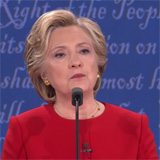
A Debate Without Class
The debate may have helped Hillary Clinton’s chances in November. But if she truly wants to set the United States on a path toward greater economic equality, Clinton will have to put class politics front and center.


The debate may have helped Hillary Clinton’s chances in November. But if she truly wants to set the United States on a path toward greater economic equality, Clinton will have to put class politics front and center.
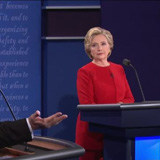
After two weeks of losing ground in key battleground states, Hillary Clinton needed a good showing at last night’s first head-to-head presidential debate with Donald Trump. She did better than that.
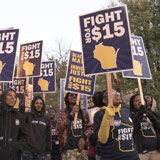
Now approaching its fourth anniversary, the Fight for $15 has transformed a magnetic labor rallying cry into a popular grassroots movement, making the once unimaginable the new normal and helping to put inequality at the center of national debate.

In order both to defeat Trump and build a base that can sustain a grassroots mass movement, the Democratic Socialists of America are turning their efforts toward voter protection. National director Maria Svart explains.
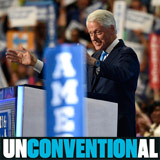
What Hillary needed—and got—last night was a biography reboot. If Bill Clinton’s valentine to his wife was characteristically a bit windy, it deftly painted a picture of her as a lifelong progressive who gets things done.

Does our country face any problem that is more important or far-reaching than America’s growing economic divide? I think we know in our bones that it doesn’t.
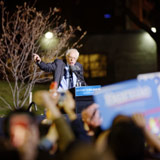
The young activists who campaigned for Bernie Sanders are clearly the Democrats’ future. Do they have the power and the smarts to remake the Democratic Party?

The Democratic primary revealed the fault lines of both establishment feminism and the socialist left. It also suggested an appetite for the kind of feminism we need—one that understands the impact of economic and foreign policy on the majority of women’s lives.

How I renounced the God-and-guns conservatism of my blue-collar roots and embraced class politics.
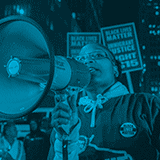
This fall’s election campaign may be the most tumultuous one since 1968, and with good reason. How did we get here? And what’s next?
Introducing our Summer special section.

Politics cannot just be about consensus. It must also be about conflict. More important, it must always be about asking for more.

Bernie Sanders’s plan for higher education would go a long way toward improving graduation rates, raising incomes, and lowering unemployment among millennials—African Americans and Latinos most of all.
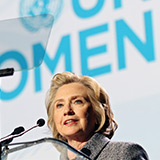
While Hillary Clinton’s and Bernie Sander’s positions and voting records on abortion may be similar, Clinton has engaged more proactively with the issue, even if not always perfectly.

South Carolina, and the South in general, has served as a bellwether for the Democratic Party’s presidential nomination since 1992.
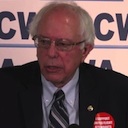
The cultural-political influence of unions is rising even as membership declines.